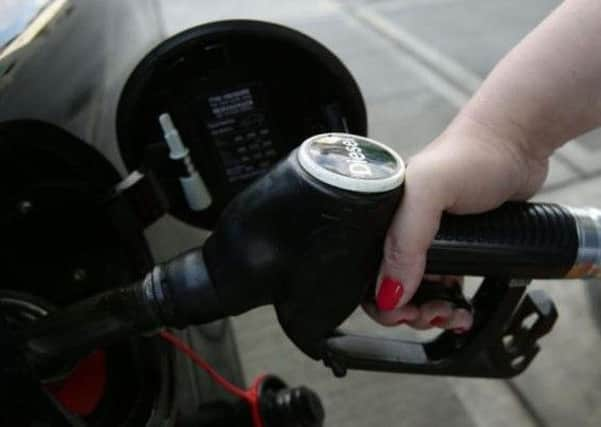Alastair Dalton: Diesel drivers should do the right thing


In the wake of the UK Government publishing its clean air plans, environmental and health campaigners have upped the ante in demonising dirty diesel.
Friends of the Earth has launched a fundraiser to help beef up moves against the “killer”, while the lobby group Doctors Against Diesel has already marched on Number Ten.
Advertisement
Hide AdAdvertisement
Hide AdDiesels have been popular in the past among car buyers for their superior fuel economy compared to petrol engines, and they have been championed for producing lower greenhouse emissions that contribute to global warming.
However, put aside the health of the planet and the stark truth is that diesel has a greater negative impact on people. The greater amount of pollutants it produces, such as particulates and nitrogen dioxide, has been linked to large number of premature deaths.
The significance of this now coming to the fore is that while the public overall puts environmental concerns very low among its priorities, human health is viewed as more significant, albeit still intangible from behind the wheel.
However, the impact on diesel car drivers of this is equally hard to see clearly yet.
Despite expectations, UK ministers have yet to embrace a scrappage scheme for the most polluting models.
If one does go ahead, the signs are that it will be extremely limited, possibly because of expediency considering the huge cost involved with dealing with the problem as comprehensively as some experts have demanded.
Jonathan Grigg, professor of paediatric respiratory and environmental medicine at Queen Mary University of London, observed that the air quality plans have been developed to “avoid undue impact on the motorist”.
He said previous efforts had “failed dismally” and he wasn’t surprised ministers had not signed up to removing the entire “current toxic diesel fleet” that wass needed to make any significant impact.
Advertisement
Hide AdAdvertisement
Hide AdMotoring groups tell me drivers should not panic. Any restrictions on diesels are some way away, with the Scottish Government only announcing in outline what its proposed “low-emission zones” might involve.
The AA said for those buying a new car, the cleanest diesel engines (6/VI) - which the UK Government would exempt from any restrictions - remained “a really good choice” for high-mileage drivers outside urban areas.
The motoring group also said it hadn’t really seen any drop in used car prices.
The RAC Foundation told me it might be best to hold off on a new car to see which way the wind blows after the general election, including the response to the air quality consultation.
It also said there could be bargains to be had if the used car market got the jitters and cut the price of models it thought would lose value.
However, it is not as if drivers have been blind to the downside to diesel. The engines may have been promoted by Labour a decade ago, but many will have replaced those vehicles by now.
This could be an opportunity for motorists to take responsibilty for the pollution they cause, such as buying a cleaner model, even a hybrid.
For those determined to hang onto the worst polluting motors, even using their cars less and travelling by other means could have a major impact - on public health, as well as their own fitness levels.